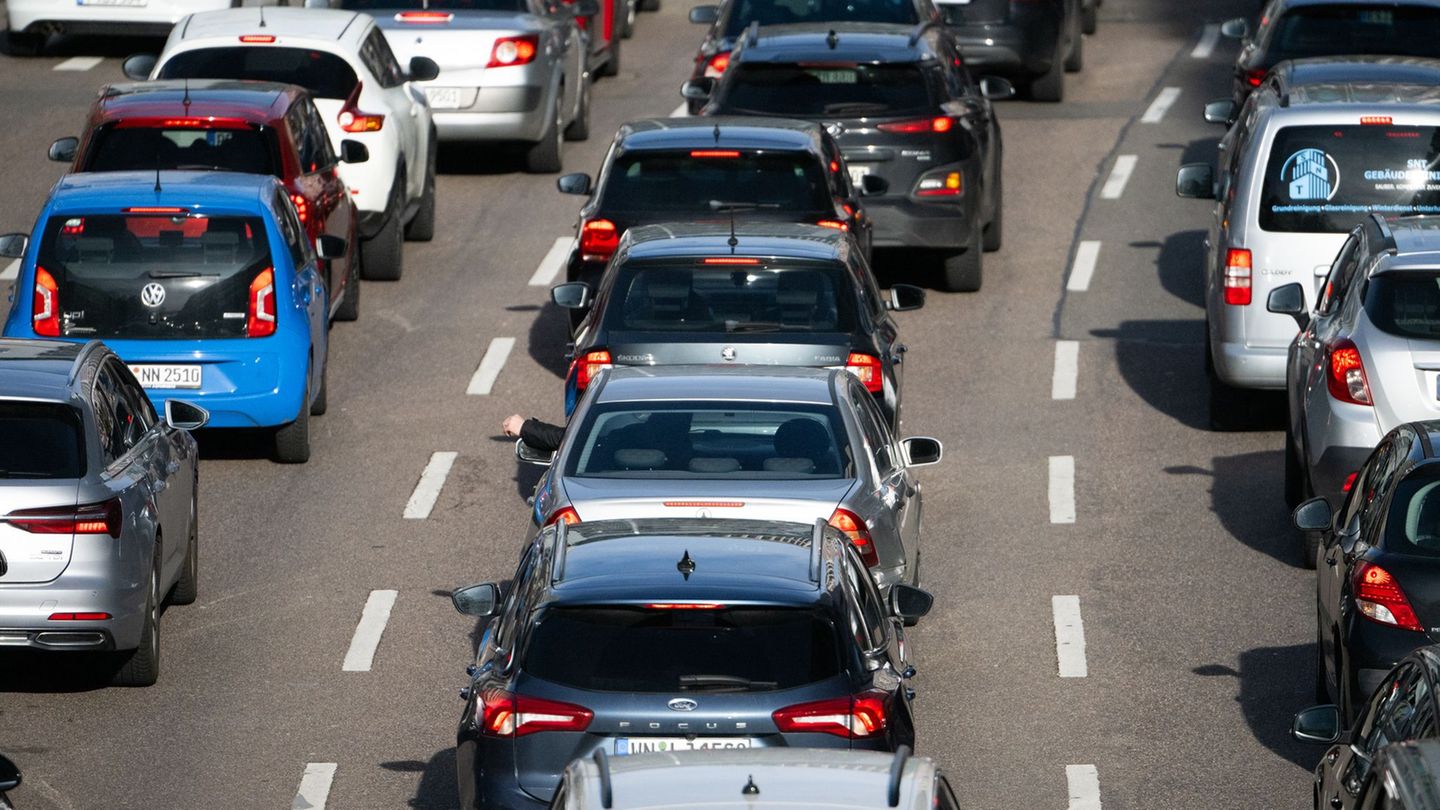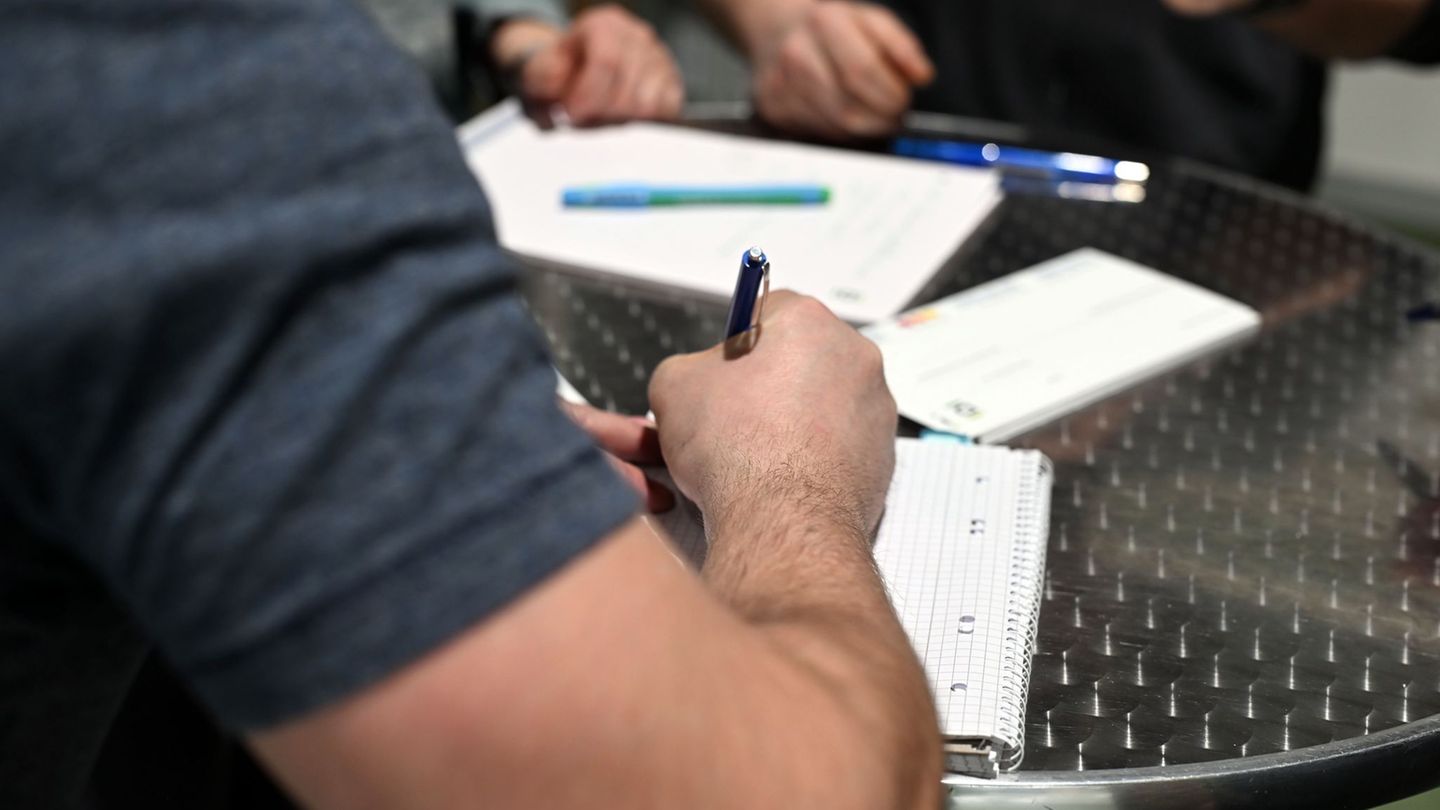The Digital Markets Act starts today in the EU. Competition lawyer Rupprecht Podszun explains why the law is promising – and how companies like Apple want to get around it.
This article is adapted from the business magazine Capital and is available here for ten days. Afterwards it will only be available to read at again. Capital belongs like that star to RTL Germany.
Mr Podszun, the Digital Markets Act EU comes into force today. Have we woken up in a new digital world?
No. It’s not like we’re going to look at the phone and everything is different. Many of the new rules are background processes, but they will definitely change things. This is good for consumers in the long term. But they will only realize over time how important the DMA is for them – also because app providers and other companies are only now slowly waking up and testing their rights.
Rupprecht Podszun is one of the directors of the Institute for Antitrust Law at the HHU Düsseldorf and President of the Academic Society for Competition Law (ASCOLA), the global specialist society for antitrust law. He is considered one of the leading voices in the EU competition community. Podszun served as an expert on the Digital Markets Act to the European Parliament and the German Bundestag
Digital law is often perceived as annoying by users. Keyword: accept cookies. Will we now experience such visible changes?
In individual cases yes, but the DMA has a completely different objective. The primary aim of the DMA is to improve the situation of commercial users. These are the ones who use gatekeeper services to do business through them.
By gatekeepers you mean companies like AppleAmazon or Google?
Yes for example. As of now, there are six gatekeepers – Alphabet, Amazon, Apple, ByteDance, Meta and Microsoft, as well as three others on the watchlist – including Booking.com. Anyone who wants to do business in the digital world typically relies on the services of these gatekeepers. And the gatekeeper has a correspondingly large bargaining power with its commercial users. It makes sense to improve this situation for the benefit of commercial customers. But the truth is that this doesn’t happen overnight. There are many new rules in the DMA. The details now have to be worked out in a tough battle between gatekeepers, commercial users and the European Commission. And I’m very excited to see who will prevail here.
What is your forecast?
Every single gatekeeper employs more lawyers than the European Commission in its DMA team. They all have the goal of interpreting the rules in the DMA in their favor or working around them. This is of course an enormous force – although the Commission is not toothless either. But now she has to bite too.
With the DMA, are we regulating efficiently or, above all, a lot?
Efficiency is the big question mark. In my opinion, the rules are comprehensive and successful. Other countries like the USA are also watching this very closely. To drive the gatekeepers, there is a kind of reversal of the burden of proof: they have to submit compliance reports and prove that they are adhering to the DMA. The first impression here is exciting, because the question: ‘How well am I behaving?’ a kind of competition has almost broken out. Some do a little at most, others a little more.
Every single gatekeeper employs more lawyers than the European Commission has in its DMA team.”
Who are the problem companies and who are the model students?
It is illusory that any of these companies would voluntarily do anything that reduces profits. It is generally said that Apple is standing in the way and trying to somehow undermine the goals of the DMA. The situation is similar with Bytedance, which has already challenged the gatekeeper designation. On the other side is Microsoft, which is seen as rather benevolent in the scene. But there is a very fundamental problem with these companies.
Namely?
These gatekeepers do not operate in one market with one product, but rather operate entire ecosystems. They control the technology, set the rules and collect money in numerous places. This is completely different than a classic company with a physical product. The result: It is often difficult to predict how regulation will work effectively. In antitrust law, we have sometimes seen that companies that were supposed to be restricted ended up doing even better afterwards. Simply because it is so difficult to keep track of everything. Sometimes there are unintended side effects. For every screw I block, Apple and Google can turn two new ones. The gatekeepers can run mass tests in real time to see how a small change affects their revenue. This is very different from, say, a car manufacturer. Regulating this is a mammoth task for an authority with 80 people.
But some of the gatekeepers also see themselves being unfairly pilloried. For example, why is Booking.com on the watchlist, but Airbnb, Expedia and Co. are not. Can you understand that?
There are clear rules according to which companies are to be assessed as gatekeepers. There are three main quantitative criteria for this: user numbers, market capitalization and sales. If I fall under this, it won’t be a coincidence. Of course, Booking complains because they have just ripped off the values and because the obligations will then suddenly increase. The commission will now examine this for 45 days. She will probably come to the conclusion that Booking is a gatekeeper. The question then remains which platform service exactly is affected. For Booking, this will be the booking platform. At ByteDance we are currently discussing whether advertising technology, in addition to TikTok, is already a central platform service for which the DMA obligations must be complied with.
How will these companies react if they have to open their platforms to competitors? It would be obvious, for example, that additional fees would then be charged for all possible individual services.
That’s right, that can’t be ruled out. The DMA has many specific behavioral obligations, but it doesn’t say quite as much about pricing. These are exactly the adjustment screws that require the Commission to say: Wait a minute, this is now circumventing the DMA regulations. There will still be tough discussions.
Amazon and its marketplace immediately come to mind. Amazon should no longer be allowed to give preference to its own products and services. What exactly can something like this look like under the DMA?
This is certainly one of the most difficult requirements. In any case, it is good that the operators of marketplaces are being pushed into a fair intermediary role. But when does self-preferentiality start? Where in the ranking can the Amazon product appear? What role can it play if consumers love Prime delivery? This is not as easy as in other cases – for example with Apple and Spotify.
Just this week, Apple received a fine of 1.8 billion euros because they do not allow alternative payment methods in their app store.
Yes, Apple must make it possible for its commercial users to address customers in other ways. If another app store or another payment platform is cheaper, it will also be cheaper for the users. This is real competition.
The amount of the penalty surprised some because the damage caused was only stated at 40 million euros. The rest comes from a so-called lump sum. So is it now arbitrary how much punishment the Commission can impose?
Absolutely no. This is also not about compensation, as one might think, that Apple has to pay to Spotify. The money goes to the EU. Spotify may file a claim for damages against Apple. We’ll see how high it turns out. In fact, the size of the fine surprised many. This is the third highest fine the Commission has ever imposed.
Only Google had to pay twice more…
Yes, and it is certainly intended that these payments have a deterrent effect. There’s no point in giving Apple a little ticket, and then tomorrow they’ll drive too fast again. That is why there is the possibility in antitrust law and now also in the DMA to impose fines of up to 10 percent of annual turnover. Based on this, we at Apple are still a long way from a harsh punishment. However, the amount does not depend on the damage, as is now written everywhere, but on the injustice of the act and how efficient the company is. The top manager simply pays a higher daily rate for the same act than his secretary.

© Teaser image: Getty Images / tobyfraley
So it’s no coincidence that the verdict came so close to the start of the DMA?
That’s how I see it, yes. That’s a sign. Apple is hit very hard by the DMA. Apple would like to offer everything from a single source because this means they are most likely to meet their own quality standard – and because this standard still brings them good money. Things are different at Google. They are more transparent, create technical interfaces and let the community participate.
In which direction will gatekeepers like Apple develop? Will they, like regulated banks, car manufacturers or pharmaceutical companies, adapt to local conditions and build their own products. Or will they continue to try to push through their old model against all odds?
That’s an exciting question. When it comes to data protection, the EU has achieved something that scientists call the “Brussels Effect”. This means that Brussels data protection has set standards worldwide. California, for example, has adopted privacy rules that are very similar. Of course, people in Brussels are hoping for such an effect again. However, the effect depends heavily on the individual profit prospects of the gatekeepers. So which rules are easy to implement and which are not. But it is also clear that the wind is blowing in the faces of gatekeepers worldwide.
Market power seems to have become too great even for the Americans.
Yes, you have to imagine that. In the USA, of all places, there are lawsuits from the antitrust authorities that are pushing for the unbundling of their companies. Even Europe doesn’t go that far. Here I also notice a fundamental difference: the Americans want to unbundle, the Europeans want to regulate. There are strongly competing views on this. Regulation may be less invasive, but it requires constant monitoring as Americans check and take action.
Source: Stern




